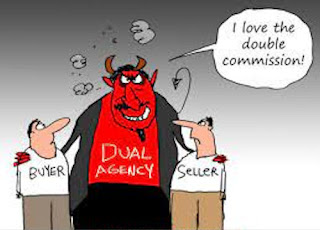Equity Skimming: In the 1980s, during the savings and loan crisis in the United States, some real estate brokers engaged in equity skimming schemes. They would convince financially distressed homeowners to sign over their properties, promising to handle the mortgage payments. Instead, the brokers would collect the rental income without paying the mortgages, leading to foreclosure and financial ruin for the homeowners.
Straw Buyers: In various instances, real estate brokers have conspired with straw buyers to inflate property values and secure fraudulent loans. Straw buyers are individuals who pretend to be legitimate buyers but are actually working in collusion with the broker to defraud lenders. By falsely inflating property values and arranging for loans based on those inflated values, brokers and straw buyers can profit illicitly.
Property Flipping Fraud: Some real estate brokers have been involved in property flipping fraud schemes. In such cases, properties are bought at artificially low prices, and then the brokers orchestrate a series of transactions, rapidly increasing the property values through false appraisals or misrepresentation. Ultimately, unsuspecting buyers are left with overvalued properties and substantial financial losses.
Kickbacks and Undisclosed Commissions: Although not directly related to double dipping, there have been instances where real estate brokers have received kickbacks or undisclosed commissions from third parties involved in a transaction. These secret payments can compromise the broker's duty to act in their client's best interest and potentially lead to unfair deals.
Not all real estate brokers engage in fraudulent or unethical practices, but the fact that some do shows the need for regulations and laws to prevent these things from happening. Real estate regulations and professional organizations continuously work to combat such practices and maintain the integrity of the industry, but when that fails there really should be legal mechanisms in place to ensure the integrity.

No comments:
Post a Comment
Comments containing links will be marked as spam and not approved. We moderate every comment.